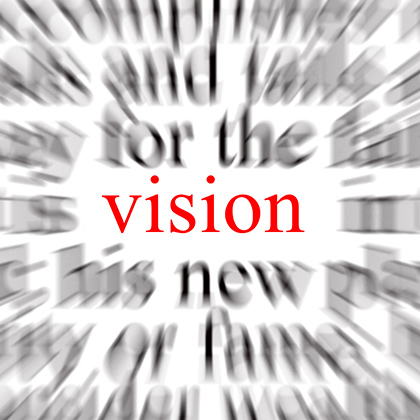
It’s widely-known that excessive alcohol consumption can have a negative impact on our bodies. We are often informed of the damaging effects of alcohol on the brain, the liver and even the heart. However, as a hub dedicated to eye health, we wanted to explore an area that isn’t widely discussed – the impact of alcohol on our eyes. As well as the short-term effects on vision, this article will help you to better understand the long-term impact of alcohol on eye health.
Short-term impacts of alcohol on eye health
Whilst unwinding with a glass of wine or spirit is something we all do on occasion, it is still important that we understand the potentially negative impacts that alcohol can have on the eyes. Although some symptoms are often short-lived and should dissipate after a few hours, it’s still good to be aware of the temporary impacts of alcohol, particularly on your vision.
Neurological disruptions
Alcohol decreases the rate at which your neurotransmitters communicate in the brain. Neurotransmitters are important chemical messengers that send information from the brain to the body. This delay in communication between your brain and eyes can cause your eye muscle coordination to weaken, leading to double vision which can impact upon your balance.i
Increased dryness
Alcohol is a diuretic, meaning it causes the body to lose water. Hence, for some people, waking up with red, sore and gritty eyes is a common occurrence after an evening of drinking. A study published in 2012 found that even small amounts of alcohol intensified the symptoms of Dry Eye Syndrome (DES) such as redness, burning and sensitivity to light.ii To help regulate and reduce these symptoms, ensure that you drink a glass of water with every beverage, to help keep the eyes lubricated.
Eyelid twitching
Excessive drinking can trigger uncontrollable eyelid twitching called myokymia.iii Myokymia usually affects the upper or lower eyelid, although it is possible for both eyelids to twitch simultaneously. The twitching can range from hardly noticeable, to becoming extremely irritating, and can occur as frequently as once every minute. Although fatigue, stress, eye strain and sleep deprivation can cause myokymia, alcohol can also be a contributing factor.
Delayed pupil reaction
Alcohol can impact upon the iris, the part of the eye responsible for focusing, which can cause it to dilate at a much slower rate.iv On top of this, it can decrease your contrast sensitivity. One study found that alcohol significantly impacts the ability to adapt vision for brightness and contrast.v This is just one reason why drink driving is strictly prohibited because intoxication leaves drivers unable to respond as quickly to traffic lights and oncoming headlights, rendering accidents much more likely.

Long-term impacts of alcohol on eye health
Alongside the short-term impacts, prolonged and continued excessive alcohol consumption can have a lasting impact on eye health. While not all cases will lead to health complications, it is still important to be aware of the long-term damage that heavy drinking can cause.
Cataracts
Numerous studies have pointed to an increased risk of cataracts in individuals who regularly consume large amounts of alcohol.vi Research conducted by the University of Boston in 2010 found that heavy drinking significantly increased the likelihood of developing cataracts and having to undergo surgery.vii If untreated, cataracts can have a significant impact on eye health, potentially leading to a loss of vision. There are a number of ways you can prevent cataracts and maintain healthy eyes as well as stopping smoking.
Malnutrition
Although alcohol is full of calories, it is also largely deficient of nutrients. In fact, excessive alcohol consumption is closely linked to malnutrition because it interferes with the rate at which your liver absorbs vitamins. Specifically, excess drinking can trigger a vitamin B1 (Thiamine) deficiency, which may cause paralysis of the eye muscles and, in some more extreme cases, loss of vision.viii
In addition, heavy drinking can incite xerophthalmia – an abnormal dryness of the conjunctiva and cornea associated with a vitamin A deficiency. This can spark a host of complications for your eyes: night blindness, thinning of the cornea, dryness, and vision loss due to retinal damage.ix Although cases are rare, individuals with excessive alcohol consumption are also more susceptible to developing toxic amblyopia (the term used to describe blindness incited by alcohol) as a result of malnutrition.x
Age-related macular degeneration (AMD)
While smoking is the most commonly linked to the development of age-related macular degeneration, scientific research now suggests that excessive alcohol consumption is another contributing factor. Over time, AMD can cause vision to gradually deteriorate, leading to a potential loss of vision. One study indicated that drinking an average of more than 3 drinks a day was associated with an increased risk of early AMD by 47%-67% in Western populations.xi
Reducing alcohol consumption for healthier eyes
Drinking in moderation is the key to keeping your eyes healthy. The Chief Medical Officers (CMO) guidelines for both men and women state that to keep health associated with alcohol to a low level, it is safest to drink no more than 14 units a week on a regular basis.14 However, you have to be mindful that everyone feels the effects of alcohol differently – a factor determined by weight, gender and build.
It’s fine to enjoy alcohol now and then, but remember to pace yourself, drink water and eat food regularly. If drinking becomes a huge part of your life, especially in social instances, then try substituting the times you would drink with other group activities, such as taking up a new hobby, sport or craft.
If you find yourself consistently exceeding a couple of drinks every day, experiencing uncontrollable cravings for alcohol, or drinking to feel ‘normal’ or ‘good’, then it may be time to reassess your habit. Fortunately, there are many resources available to help you do this. Speaking to your health-care professional in confidence can be a productive place to start.
For more ways to improve your eye health or information on a range of eye conditions, feel free to browse the rest of our Vision Health Hub.
References:
-
Silva, J., Cristino, E., Almeida, N., Medeiros, P. and Santos, N. (2017). Effects of acute alcohol ingestion on eye movements and cognition: A double-blind, placebo-controlled study. PLOS ONE. ;12(10), p.e0186061.
-
You, Y-S., Qu, N-B., Yu, X-N. (2016). Alcohol consumption and dry eye syndrome: a Meta-analysis. International Journal of Ophthalmology,9(10).
-
Sathyan, S. & Antony, R.C. (2017) Superior Oblique Myokymia: Some Novel Observations. Middle East African Journal of Ophthalmology, 24(3), 162–164.
-
Lata H., Kaur, A. & Gupta, N. (2012) Effect of glare on night time driving in alcoholic versus non-alcoholic professional drivers. International Journal of Applied and Basic Medical Research, 2 (2), 128.
-
Department of Communications and Public Affairs, & Western University. (2015, July 13) New study from Western University shows alcohol affects vision by 30 per cent. Retrieved from : https://mediarelations.uwo.ca/2014/01/14/new-study-from-western-university-shows-alcohol-affects-vision-by-30-per-cent
-
Negahban, K. & Chern, K. (2002) Cataracts associated with systemic disorders and syndromes. Current Opinion in Ophthalmology, 13(6), 419-422.
-
Kanthan, G.L., Mitchell, P., Burlutsky, G. & Wang, J.J. (2010). Alcohol Consumption and the Long-Term Incidence of Cataract and Cataract Surgery: The Blue Mountains Eye Study. American Journal of Ophthalmology, 150(3).
-
Gratton, S.M. & Lam, B.L. (2014). Visual loss and optic nerve head swelling in thiamine deficiency without prolonged dietary deficiency. Clinical Ophthalmology (Auckland, N.Z.), 8, 1021–1024. Available online: http://doi.org/10.2147/OPTH.S64228
-
Roncone, D. (2006). Xerophthalmia secondary to alcohol-induced malnutrition. Optometry - Journal of the American Optometric Association, 877(3), 124-133.
-
Sharma, P. & Sharma, R.(2011). Toxic optic neuropathy. Indian Journal of Ophthalmology, 59(2), 137–141.
-
Chong, E.W., Kreis, A.J., Wong, T.Y., et al. (2008). Alcohol consumption and the risk of age-related macular degeneration: a systematic review and meta-analysis. Am J Ophthalmol, 145 (4) 707-715.
-
O'Neil, E. (2011). Effects of Prenatal Alcohol Exposure on Ocular Development. Embryo Project Encyclopedia.
-
Tufan, C.A., Abban, G., Akdogan, I., Erdogan, D. and Ozogul, C. (2007). The Effect of in ovo Ethanol Exposure on Retina and Optic Nerve in a Chick Embryo Model System. Reproductive Toxicology, 23, 75–82.
-
UK Chief Medical Officer’s Low Risk Drinking Guidelines. (2016). Available online: https://assets.publishing.service.gov.uk/government/uploads/system/uploads/attachment_data/file/545937/UK_CMOs__report.pdf
Related Posts?
Disclaimer: The information presented by Nature's Best is for informational purposes only. It is based on scientific studies (human, animal, or in vitro), clinical experience, or traditional usage as cited in each article. The results reported may not necessarily occur in all individuals. Self-treatment is not recommended for life-threatening conditions that require medical treatment under a doctor's care. For many of the conditions discussed, treatment with prescription or over the counter medication is also available. Consult your doctor, practitioner, and/or pharmacist for any health problem and before using any supplements or before making any changes in prescribed medications.

Christine
Christine Morgan has been a freelance health and wellbeing journalist for almost 20 years, having written for numerous publications including the Daily Mirror, S Magazine, Top Sante, Healthy, Woman & Home, Zest, Allergy, Healthy Times and Pregnancy & Birth; she has also edited several titles such as Women’ Health, Shine’s Real Health & Beauty and All About Health.
View More



